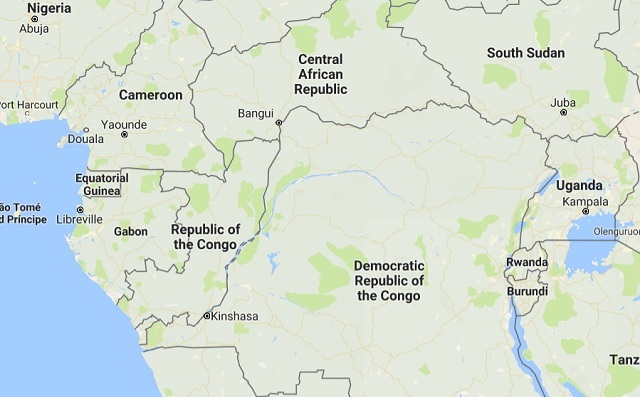
Libreville, Gabon | AFP |
Pressure mounted on President Ali Bongo of Gabon on Tuesday over a disputed election win after EU observers reported a “clear anomaly” in the vote and former colonial power France and his ex-justice minister urged a recount.
Bongo claimed victory in the August 27 poll by a wafer-thin margin of some 6,000 votes.
But a European Union delegation deployed in Gabon to monitor the vote said there was a flaw in voting in Haut-Ogooue province, the incumbent’s fiefdom.
“An analysis of the number of non-voters as well as blank and disqualified votes reveals a clear anomaly in the final results in Haut-Ogooue,” the observers said in a statement.
Turnout in Haut-Ogooue, one of Gabon’s nine provinces, exceeded 99 percent, and 95 percent voted for Bongo, according to official figures.
Even after the vote result in the other provinces had been settled, electoral commission members fiercely debated the count for Haut-Ogooue, the heartland of Bongo’s Teke ethnic group, before the incumbent was declared the winner on Wednesday.
“There needs to be a clear electoral process,” French Prime Minister Manuel Valls told radio station RTL on Tuesday, saying there were “some doubts”.
“It would be wise to do a recount.”
France, the EU and the United States had already called for the results to be published according to each polling station, but until now had stopped short of demanding a recount.
The move came just hours after Justice Minister Seraphin Moundounga, who is also a deputy prime minister, resigned late Monday, demanding “a recount of the votes, polling station by polling station, and registry by registry”.
Bongo’s defeated rival Jean Ping, a veteran diplomat who has held a top African Union job, on Monday called for a general strike to oust “the tyrant.”
But his appeal appeared to go largely unheeded in the capital Libreville on Tuesday like the previous day when banks and shops re-opened after being shuttered due to post-election violence.
‘Foreigners involved’
Communications minister and government spokesman Alain-Claude Bilie-By-Nze called demands for a recount a “plot” and accused foreigners of trying to manipulate the results.
He said an Ivorian national had been arrested in Ping’s headquarters on Monday, adding: “We are not saying that Ivory Coast is involved but some highly-placed Ivorians are.”
According to an AFP count, post-election chaos has claimed at least seven lives in the oil-rich central African nation, ruled by the Bongo family since 1967.
Gabonese authorities, however, said Monday the toll was three killed and 105 wounded, with the government saying some deaths had previously been incorrectly attributed to the clashes.
Valls on Tuesday also called on the Gabonese authorities to establish the whereabouts of around 15 French nationals who have been missing since the violence began.
“We have no news of around 15 French citizens, who are in many cases French-Gabonese dual nationals. We ask the Gabonese authorities that everything be done to find them,” he said
Gabon’s foreign ministry confirmed the authorities had arrested some Franco-Gabonese nationals, saying the justice ministry would answer any questions from concerned families.
But it also said dual nationals living in Gabon would be subject to Gabonese laws.
800 arrests
Some 800 people have been arrested in recent days in the capital, with the authorities accusing them of looting, while lawyers say they are being held in “deplorable” conditions.
Several prisoners told AFP they had been beaten, denied food and water or questioned harshly by authorities.
“There were no toilets. We slept in our pee,” said a man who asked that his name be given as Matthieu to protect his identity.
Meanwhile, a high-level African Union delegation including heads of state is ready to be dispatched to Libreville to help calm the situation, AU chairman and Chad President Idriss Deby said.
UN chief Ban Ki-moon spoke to both Bongo and Ping on Sunday and “deplored the loss of life”, a UN statement said, adding that he “called for an immediate end to all acts of violence.”
Gabon had previously enjoyed relative political stability, with French support underpinning Omar Bongo’s 41-year rule.
After the elder Bongo died in June 2009, his son Ali won an election but opposition media claimed he had essentially been installed by France.
Gabon, a country roughly the size of Britain but with a population of 1.8 million, has only known three presidents since it ceased to be a French colony in 1960.
One third of its population lives in poverty, even though the country boasts one of Africa’s highest per capita incomes — $8,300 annually — thanks to oil revenue.
 The Independent Uganda: You get the Truth we Pay the Price
The Independent Uganda: You get the Truth we Pay the Price



